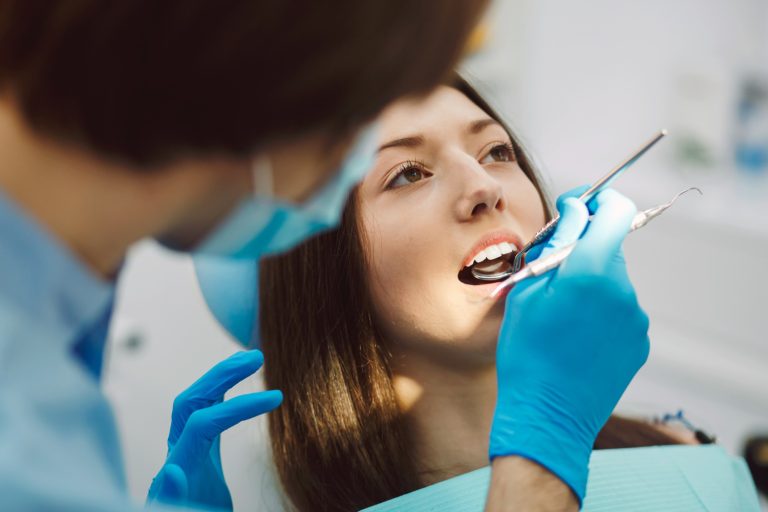
All About Enamel Erosion: Causes and Prevention
Your teeth’s hard outer layer, or tooth enamel, is essential for shielding them from environmental factors like chemicals and high temperatures as well as normal wear and tear. Even though enamel is the strongest material in the human body, it can nevertheless break. When this protective layer erodes, the sensitive dentin beneath is exposed, leading to enamel erosion, a common dental problem. Maintaining strong and healthy teeth requires an understanding of the causes of enamel erosion and how to prevent it.
Causes of Enamel Erosion
Acid exposure on a regular basis is one of the main reasons for enamel degradation. Acidic meals and drinks, including wine, soda, citrus fruits, and sports drinks, can erode enamel over time. If taken in excess or without following good dental hygiene procedures, even nutritious options like orange juice or lemon water might cause erosion.
Gastroesophageal Reflux Disease (GERD), which causes stomach acid to enter the mouth, particularly when you’re sleeping, is another important culprit. In a similar vein, chronic vomiting and bulimia introduce stomach acids that, over time, can cause significant enamel erosion.
Additionally, xerostomia, or dry mouth, can hasten the loss of enamel. Because saliva serves as a natural barrier against oral acids, enamel is more vulnerable to acid assault when saliva levels are low. Medication side effects, certain illnesses, or just dehydration might cause this syndrome.
Too much brushing or the use of a toothbrush with strong bristles can mechanically erode enamel. Furthermore, bruxism, also known as teeth grinding, which frequently happens while you are sleeping or as a result of stress, puts too much strain on your teeth and causes enamel loss.
Symptoms of Enamel Erosion
Increased tooth sensitivity, particularly to hot, cold, or sweet meals, is one of the early indicators of enamel erosion. As the enamel thins and the underlying dentin show through, teeth may appear more yellow. Teeth may become chipped, rough, or rounded under extreme situations.
Prevention Tips
Good oral hygiene habits and dietary adjustments are key factors in preventing enamel erosion. It is important to limit acidic foods and beverages. When you do eat them, rinse your mouth with water afterward and use a straw to reduce contact with your teeth. Since enamel is momentarily weakened and more prone to injury after eating acidic foods, avoid brushing right after.
To preserve enamel while cleaning, use fluoride toothpaste and a soft-bristled toothbrush. Fluoride can help remineralize early erosion and strengthen enamel. For further protection, Dr. Borham could also suggest remineralizing chemicals or fluoride treatments.
Maintaining proper hydration is essential for promoting salivation. Saliva flow can also be stimulated by chewing sugar-free gum. To manage the underlying disease, get medical help if you have GERD or frequently throw up.
Finally, harm from teeth grinding while you sleep can be avoided by wearing a night guard. Frequent dental examinations are necessary to detect early indicators of enamel erosion and receive tailored guidance from Dr. Borham.
Schedule frequent dental exams to catch any problems before they become emergencies.
Call us right now to schedule an appointment if you would like to maintain good dental health with regular checkups and cleanings.